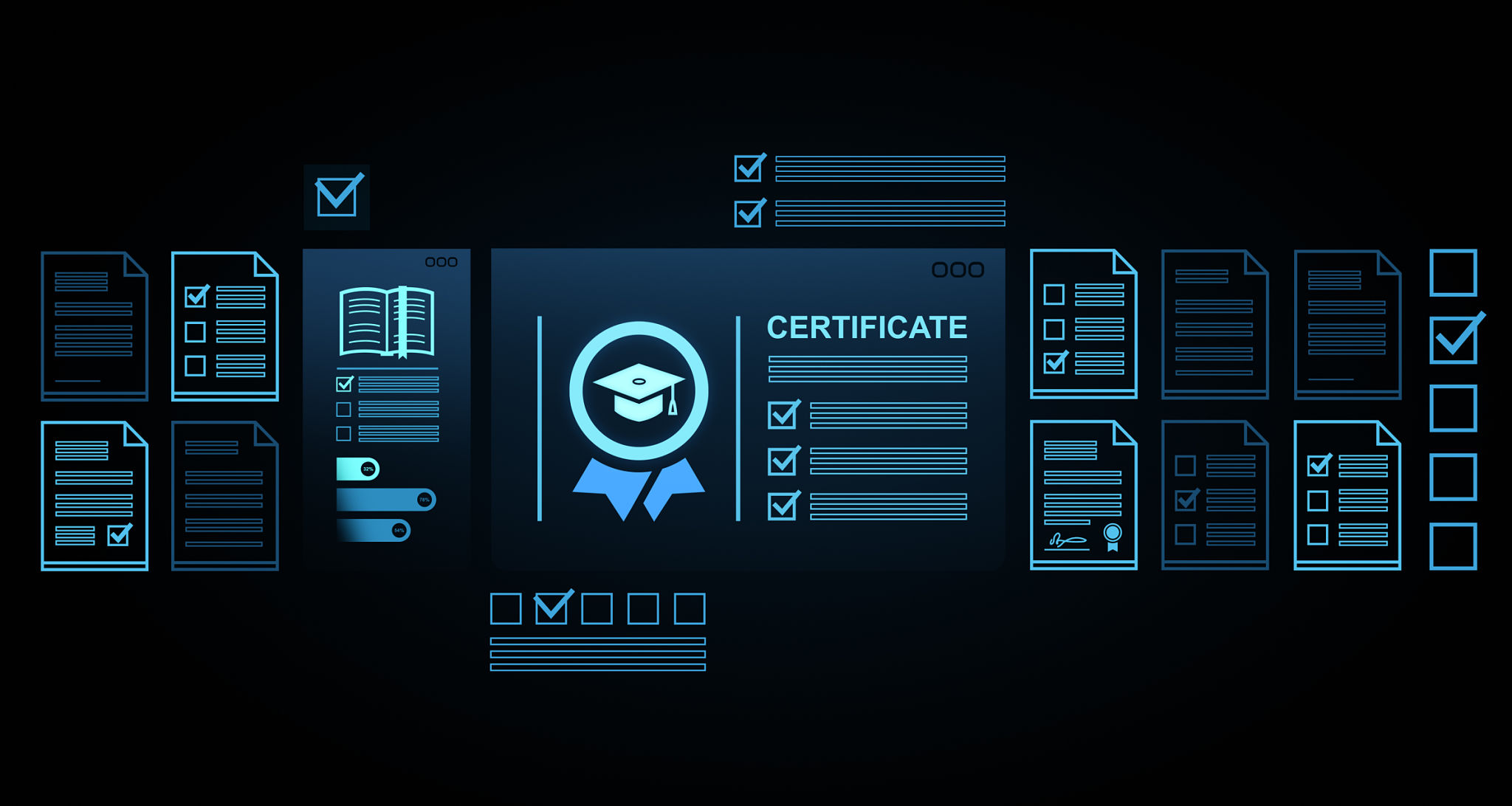The Rise of Remote Certifications: Transforming Business Compliance
The Evolution of Business Certifications
In recent years, the landscape of professional certifications has undergone a significant transformation. As businesses increasingly rely on digital platforms and remote work environments, the demand for remote certifications has surged. This shift is not merely a response to the changing work environment but a proactive approach to maintaining and enhancing business compliance.
Remote certifications are now pivotal in ensuring that businesses adhere to industry standards without the constraints of physical presence. They offer flexibility and accessibility, allowing professionals to gain certifications from anywhere in the world. This evolution is not only convenient but also essential for businesses aiming to stay competitive and compliant in a fast-paced digital economy.

The Advantages of Remote Certifications
Remote certifications provide numerous benefits for both employers and employees. For one, they significantly reduce the time and cost associated with traditional in-person certification processes. Employees can pursue certifications at their own pace, balancing work responsibilities with professional growth.
Moreover, these certifications often encompass a wide array of industries and specializations, making it easier for individuals to find courses that align with their career goals. This adaptability ensures that businesses can tailor their compliance needs to fit their unique operational requirements.

Enhancing Compliance Through Technology
Technology plays a crucial role in the rise of remote certifications. Platforms offering these certifications are equipped with advanced tools that ensure the integrity and credibility of the certification process. From proctored exams to blockchain-based validation systems, technology ensures that remote certifications maintain the same standards as their traditional counterparts.
Businesses benefit from these technological advancements by having access to real-time data and analytics regarding employee progress and compliance status. This transparency allows companies to make informed decisions and quickly address any gaps in compliance.
Challenges and Considerations
While remote certifications offer many advantages, they also come with challenges. One significant concern is ensuring that cybersecurity measures are robust enough to protect sensitive information. Businesses must invest in secure platforms and continuously update their systems to prevent data breaches.
Another consideration is ensuring that remote certifications remain relevant and up-to-date with industry changes. Regular reviews and updates of certification content are essential to ensure that professionals remain knowledgeable about current compliance standards.

The Future of Remote Certifications
The rise of remote certifications is expected to continue as businesses recognize their value in maintaining compliance and fostering professional growth. As technology evolves, these certifications will likely become more sophisticated, offering even more personalized learning experiences.
Furthermore, as global collaboration becomes increasingly common, remote certifications will play a vital role in ensuring that professionals across different regions adhere to standardized compliance measures. This global approach to compliance will enhance business operations and build trust among international partners.
In conclusion, the rise of remote certifications is transforming how businesses approach compliance. By embracing these digital solutions, companies can ensure they remain compliant while supporting their employees' professional development. As this trend continues, it will undoubtedly reshape the future of business compliance on a global scale.
